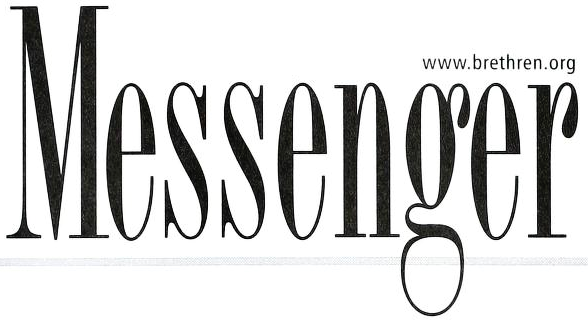The slowdown in mentions of war tax resistance in Brethren publications towards the end of the cold war accelerated further during the opening years of the Clinton presidency.

The issue of Messenger included a brief article about the war tax resistance of Brethren co-pastors Louise & Phil Rieman:
A taxing situation
When rolls around, Louie and Phil Rieman plan to file their federal income tax just like everyone else. But along with it, the co-pastors of the Ivester Church of the Brethren, in Grundy Center, Iowa, will enclose a letter. It opens, “Dear Brothers and Sisters at the IRS: Once again we write to let you know that we are not paying the full, expected amount…”
Isn’t that being dishonest? No. It’s not a criminal offense, the IRS says, as long as an accurate tax return is filed. Of course, the IRS can and does come after the withheld amount. And the withholders usually end up losing more money than if they had paid their taxes in full, on time. Civil penalties, as large as $500, and interest charges are added when the IRS eventually collects unpaid taxes by seizing paychecks, bank accounts, or property.
In , IRS agents seized the Rieman family van. It had an appraised value of $8,000, but the IRS auctioned it off for $3,900 and kept $3,000.
Why withhold taxes, in such a “losing” situation? Louie and Phil are among a number of Brethren who believe so strongly that war is sin, that they choose this way of protesting the 50 percent of their tax money they figure goes for military use. So they only pay 50 percent of what they owe and let the IRS come after the rest. The Riemans consciously put the percentage that would have been used for the military into life-enhancing programs instead. They have been doing this .
“Our main goal is not simply protesting war taxes,” explains Louie, “but living in spiritual and moral obedience to the teachings of Christ.”
It’s not a popular stance with the general public in this country. Sneaking through every loophole one can find is the more acceptable way of withholding taxes. But the Riemans feel led to make a costly statement against war.
“How can we pray for peace and pay for war?” asks Phil. A good question, one that other Brethren have to wrestle with.
The issue brought this news (source):
War tax resistance led to a settlement of $31,343 between the Quaker magazine Friends Journal and the IRS. Editor Vinton Deming refused to pay taxes for , giving the money to peace organizations instead. The IRS demanded a tax levy on Deming’s salary, which the Journal’s board of managers reluctantly paid on the advice that they could not win a case in court.
There were also a handful of mentions of the proposed federal “Peace Tax Fund” legislation, which had a well-attended House of Representatives committee hearing in .
A brief story about “Organic Gardening” in the issue made reference to the tax resistance of Arlene & Cliff Kindy:
“We live below the taxable income level,” says Arlene, “so that we don’t have to pay military taxes.” Taking their Christianity seriously has meant simplification on many different levels, including riding their bicycles instead of driving a car, and home-schooling their daughters.
There was a brief mention of the “Midwest War Tax Resistance Conference,” sponsored by the Iowa Peace Network, which had Church of the Brethren members in it, in the issue (source).
Another “New Call to Peacemaking” conference was held in , but from the report of it in the Messenger, war tax resistance was no longer the main attraction. “Sabrina and David Falls, Quakers from Richmond, Ind., who spoke about their experiences in refusing to pay income tax designated for military use…” were among the speakers.
The issue profiled Anita & Rich Buckwalter, and noted (source):
For almost 30 years, the Buckwalters have made a protest against taxes going to military funding, withholding the part of their taxes they calculate would be spent by the military. To those who question his patriotism, Rich responds, “I think I am being a patriot and a responsible citizen by calling the nation to its deeper responsibility.”
